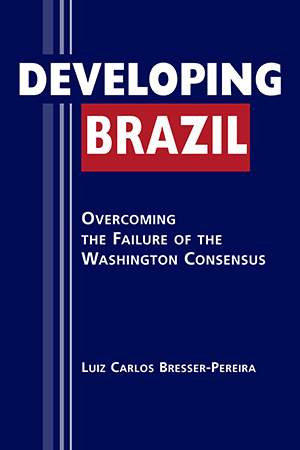After the 1994 Real Plan ended fourteen years of high inflation in Brazil, the country’s economy was expected—mistakenly—to grow quickly. Luiz Carlos Bresser-Pereira discusses Brazil’s economic trajectory from the mid-1990s to the present Lula administration, critically appraising the neoliberal reforms that have curtailed growth and proposing a national development strategy geared toward effective competition in the global marketplace.
Luiz Carlos Bresser-Pereira is professor emeritus of politics and economics at the Getulio Vargas Foundation. In addition to his long academic career, he has served as Brazil’s minister of finance, minister of federal administration and state reform, and minister of science and technology, and also as secretary of the government of the state of São Paulo.
"A crucial addition to the empirical policy literature on economic development and an eye-opening reevaluation of the economic orthodoxy that has been accepted by most Western scholars regarding the economic tools available to reformers in developing countries."—Sandra Chapman Osterkatz, Latin American Politics and Society
"An excellent summary of Brazilian macroeconomic policy and performance since 1995. Its relevance extends to much of Latin America, where economic challenges have differed only in degree from Brazil's.... Highly recommended."—Choice
"Bresser-Pereira has written a most innovative and timely book, presenting a devastating critique of the dismal record of neoliberalism in Latin America and, what is even more important and desperately needed, a ... well-argued and substantial proposal for a new and revised development strategy."—Osvaldo Sunkel, University of Chile
"Relying on decades of experience in the academic, government, and private sectors, Bresser-Pereira rejects what he considers the 'surrender to the North' that has characterized economic thinking in his native Brazil.... Both analytically and prescriptively, this is a path-breaking book."—Adam Przeworski, New York University






